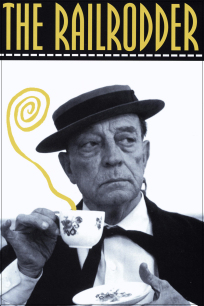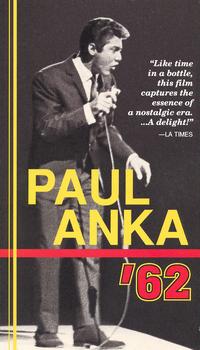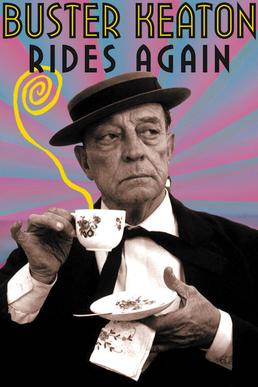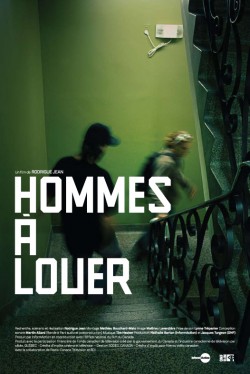Related Research Articles

The National Film Board of Canada is a Canadian public film and digital media producer and distributor. An agency of the Government of Canada, the NFB produces and distributes documentary films, animation, web documentaries, and alternative dramas. In total, the NFB has produced over 13,000 productions since its inception, which have won over 5,000 awards. The NFB reports to the Parliament of Canada through the Minister of Canadian Heritage. It has bilingual production programs and branches in English and French, including multicultural-related documentaries.
Roman Kroitor was a Canadian filmmaker who was known as a pioneer of Cinéma vérité, as the co-founder of IMAX, and as the creator of the Sandde hand-drawn stereoscopic 3D animation system. He was also the original inspiration for The Force. His prodigious output garnered numerous awards, including two BAFTA Awards, three Cannes Film Festival awards, and two Oscar nominations.
Universe is a 1960 black-and-white documentary short film made in 1960 by Roman Kroitor and Colin Low for the National Film Board of Canada (NFB). The NFB writes: "[The film] creates on the screen a vast, awe-inspiring picture of the universe as it would appear to a voyager through space. Realistic animation takes you into far regions of space, beyond the reach of the strongest telescope, past Moon, Sun, and Milky Way into galaxies yet unfathomed."

Arthur Lipsett was a Canadian filmmaker with the National Film Board of Canada. His short, avant-garde collage films, which he described as "neither underground nor conventional”, contain elements of narrative, documentary, experimental collage, and visual essay. His first film, Very Nice, Very Nice, was nominated for an Academy Award.

"Harry" Winston Jerome was a Canadian track and field sprinter and physical education teacher. He won a bronze medal at the 1964 Olympics in Tokyo and set a total of seven world records over the course of his career.
Colin Archibald Low was a Canadian animation and documentary filmmaker with the National Film Board of Canada (NFB). He was known as a pioneer, one of Canada's most important filmmakers, and was regularly referred to as "the gentleman genius". His numerous honors include five BAFTA awards, eight Cannes Film Festival awards, and six Academy Award nominations.

The Railrodder is a 1965 short comedy film starring Buster Keaton in one of his final film roles, directed and written by Gerald Potterton and produced by the National Film Board of Canada (NFB). A 25-minute comedic travelogue of Canada, The Railrodder was also Keaton's final silent film, as the film contains no dialogue and all sound effects are overdubbed.

Lonely Boy is a 1962 Canadian cinéma vérité documentary about the former teen singer Paul Anka. The film takes its name from Anka's hit song, "Lonely Boy", which he performs to screaming fans in the film. This short documentary makes use of hand-held cameras to record intimate backstage moments. It was produced by the National Film Board of Canada and directed by Roman Kroitor and Wolf Koenig.

Buster Keaton Rides Again is a 55-minute 1965 documentary film directed by John Spotton and narrated by Michael Kane. The film is a behind-the-scenes documentary shot while Buster Keaton's film The Railrodder (1965), was being produced. Although it is a production documentary, the film is actually longer than The Railrodder, which was only 24 minutes long. Both films were produced by the National Film Board of Canada (NFB). A French version of Buster Keaton Rides Again, Avec Buster Keaton was also released.
Paperland: The Bureaucrat Observed is a 1979 documentary film critiquing bureaucracy, written and directed by Donald Brittain and produced by the National Film Board of Canada and CBC-TV.

Charles Officer was a Canadian film and television director, writer, actor, and professional hockey player.

Men for Sale is a 2008 documentary film by Canadian director Rodrigue Jean, about male prostitutes working in Montreal, Quebec, Canada. The film was shot over a one-year period in Montreal's Gay Village.
Canada Carries On was a series of short films by the National Film Board of Canada which ran from 1940 to 1959. The series was created as morale-boosting propaganda films during the Second World War. With the end of the war, the series lost its financial backing from the Wartime Information Board, but continued as an NFB series of theatrical shorts that included newsreels as well as animated shorts.
Wrestling is a 1961 documentary film about professional wrestling in Montreal. It was produced by Jacques Bobet for the French program branch of the National Film Board of Canada (NFB).
Les raquetteurs is a 1958 Direct Cinema documentary film co-directed by Michel Brault and Gilles Groulx. The film explores life in rural Quebec, at a convention of snowshoers in Sherbrooke, Quebec in February 1958. The film is notable for helping to establish the then-nascent French language production unit at the National Film Board of Canada, and more importantly, the development of a uniquely Quebec style of direct cinema.
Candid Eye is a Canadian documentary television series which aired on CBC Television in 1958 and was expanded into 1961.
Chelsea McMullan is a Canadian documentary filmmaker, best known for their 2013 film My Prairie Home, a film about transgender musician Rae Spoon.
Selwyn Jacob is a Canadian documentary filmmaker whose work has often explored the experiences of Black Canadians as well as other stories from Canada's multicultural communities, as both as an independent director and since 1997 as a producer with the National Film Board of Canada (NFB).

Albert Kish was a Canadian documentarian/filmmaker.
The 26th Canadian Film Awards were held on October 12, 1975 to honour achievements in Canadian film. The ceremony was hosted by radio personality Peter Gzowski.
References
- ↑ Beard, William; Jerry White (2002). "Training the nation/s: The Road Taken". North of everything: English-Canadian cinema since 1980 . Edmonton: University of Alberta Press. pp. 88–90. ISBN 0-88864-398-5.
The Road Taken NFB.
- 1 2 "The Road Taken". Collection. National Film Board of Canada. Retrieved 20 November 2009.